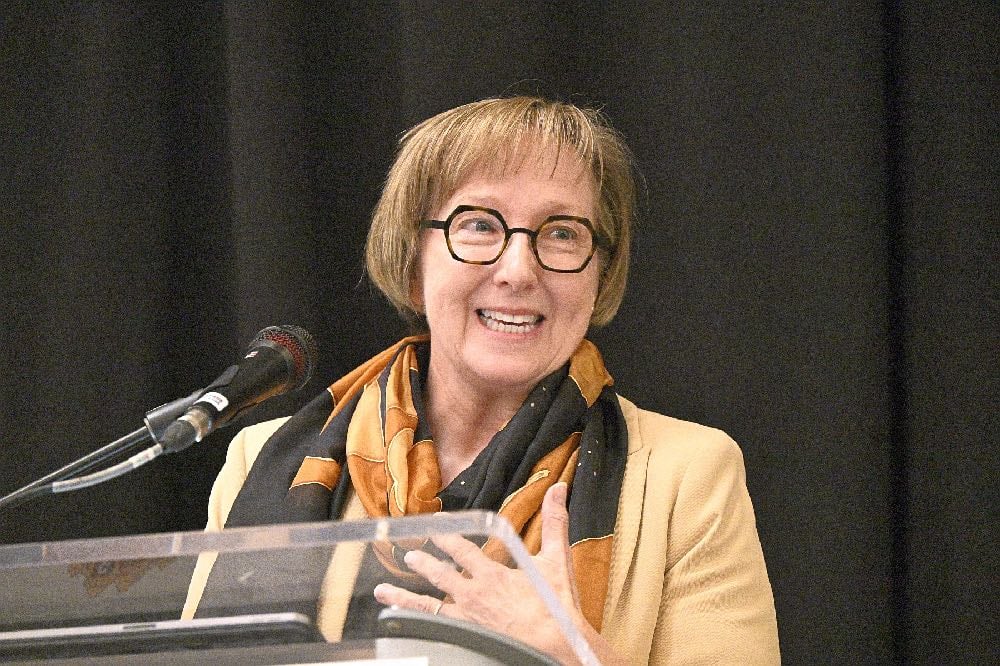The Rev. Dr. Dawn Davis, assistant professor of Contextual Learning at Huron University in London, Ontario, was invited to be the guest reflector for Synod. She holds a doctorate in ministry and spiritual formation and has also earned a professional human resources certification specializing in training, development, and organizational behavior. She is the author of Experience: Spiritual Formation in Theological Education.
Davis praised the process and work than has been done in the diocesan church in the past few years, to create a well-ordered and resourced diocesan church with healthy parishes equipped to serve. She was impressed with the resources that have been created and are easily accessible. “This plan comes from an accountably drawn up consultative process. It has attainable targets, reasonable yet urgent timelines, clear lines of accountability, and is rooted in a very practical and foreseeable vision,” she said. “What your diocese has accomplished under the leadership of your bishop and his team is one of the most comprehensive and effective plans I’ve ever seen,” she said.
Her aim then, she said, was to help Synod members look to the horizon to see what might be coming next. Davis encouraged listeners to remember to ask themselves ‘Why are we doing this? …Why do people need it?’ So, I invite you… to go deeper. To ask this deeper spiritual question means to listen with ears that hear more than facts and figures. It is to be mindful that this is not our church. It’s God’s church. We are stewards,” she said.
In her second reflection, she asked her listeners if they had ever had a spiritual experience and whether they could describe that to someone else. “Maybe this is a feeling you had while you were in nature, a sense of profound awe at the birth of a child, a moment of inexplicable joy or peace during worship, or while engaged in music and dance.”
She observed that Anglicans tend to keep their spiritual lives totally private, but she said it is important to be able to talk about those experiences. It is important, she said, because “when people ask us why, they want to know about the love that has helped you overcome mountains. They want to know about the trust in the divine that brought you healing. They want to know about the divine promise that gave you a new beginning. They want to know about that compassionate heart that came from an experience of really knowing what it was like to be wrong and be forgiven and be whole.”
Related articles:
Ascension House directors working to reduce parish costs and increase services
Bishop provides guidance for parishes facing major change
Time of Prayer resources posted
Contextual mission guide online
Telling our parish ministry story
Synod renews commitment to work for housing justice
Archbishop of Jerusalem sends greetings


Saint Mary’s Church, Westmeath — Deanery of the Northwest